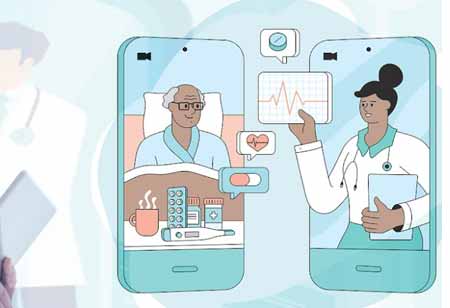Thank you for Subscribing to Healthcare Business Review Weekly Brief

Digital Tools to Improve Allergy Management
Healthcare Business Review
The data-driven approach enhances understanding of respiratory allergies and guides the development of innovative interventions and therapies.
FREMONT, CA: Digital technologies have significantly transformed the healthcare landscape, offering innovative solutions to various medical challenges, including managing respiratory allergic diseases. These technologies encompass many tools and platforms, ranging from mobile applications to wearable devices and telemedicine services. Leveraging digital innovations has led to improvements in managing respiratory allergies in several key ways. Firstly, digital technologies facilitate better monitoring and tracking of symptoms. Mobile applications and wearable sensors enable individuals to monitor their respiratory health in real time.
For instance, asthma management apps allow users to record symptoms, peak flow measurements, medication usage, and triggers. These data can be analyzed to identify patterns and trends, empowering patients and healthcare providers to make treatment and lifestyle adjustment decisions. Digital platforms offer personalized and adaptive interventions tailored to the needs of individuals with respiratory allergies. Advanced algorithms analyze patient data to provide customized recommendations for medication adherence, trigger avoidance strategies, and lifestyle modifications. For example, smart inhalers equipped with sensors can detect inhaler usage and provide reminders for medication adherence.
The personalized interventions enhance patient engagement and improve treatment outcomes by addressing individualized needs effectively. Telemedicine services enable remote consultations with healthcare providers, offering convenient access to specialized care for individuals with respiratory allergies. Telemedicine platforms facilitate virtual appointments, allowing patients to consult with allergists or pulmonologists from the comfort of their homes.
It is particularly beneficial for individuals living in remote areas or those not regularly visiting healthcare facilities. Telemedicine improves access to care, reduces the burden on healthcare systems, and enhances overall patient satisfaction.
Digital technologies empower patients with educational resources and self-management tools to better understand and control their respiratory allergies. Mobile applications and online platforms deliver educational content on allergy triggers, symptom management, and medication use. The resources enable patients to become active participants in their care, fostering self-efficacy and empowering them to make informed decisions regarding their health. Self-management tools, such as personalized action plans and symptom trackers, assist patients in effectively managing their condition between healthcare visits. Digital solutions facilitate seamless communication and collaboration among healthcare providers, enhancing care coordination for individuals with respiratory allergies.
Electronic health records (EHRs) enable the secure exchange of patient information between primary care physicians, allergists, pulmonologists, and other specialists involved in managing respiratory allergies. The interoperability ensures that healthcare providers access comprehensive patient data, enabling informed decision-making and personalized care delivery. Digital technologies support research and innovation in respiratory allergies by facilitating data collection and analysis on a larger scale. Mobile health (mHealth) platforms and wearable devices enable researchers to gather real-world data on respiratory symptoms, triggers, and treatment outcomes from diverse populations.
The data-driven approach fosters a deeper understanding of respiratory allergies and informs the development of novel interventions and therapies. Digital technologies have revolutionized the management of respiratory allergic diseases by offering innovative solutions for monitoring, personalized interventions, telemedicine services, patient education, care coordination, and research. These digital innovations empower patients, enhance access to care, improve treatment outcomes, and drive advancements in the field. The role of digital solutions in managing respiratory allergies is expected to expand further, providing new opportunities to optimize patient care and quality of life.









